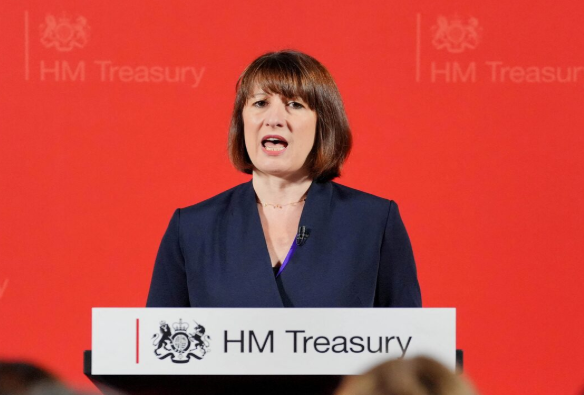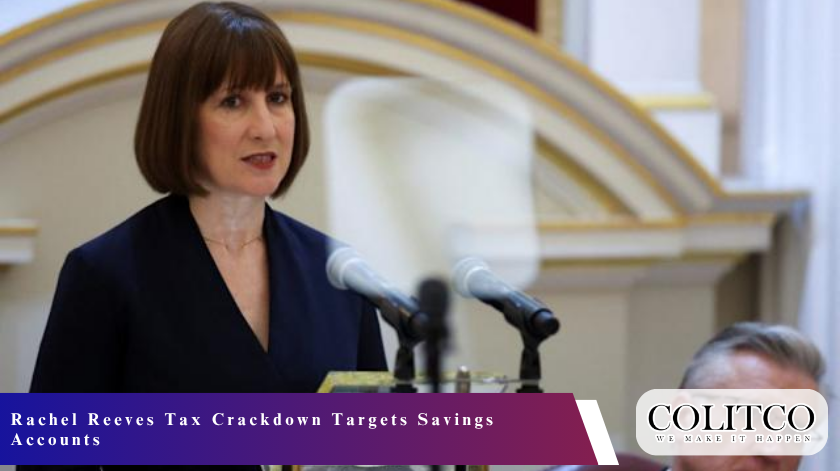New Rules to Monitor Untaxed Savings Interest

Chancellor Rachel Reeves announces new tax rules for UK savings accounts
In a decisive move aimed at tightening the UK’s revenue collection, Chancellor Rachel Reeves has announced a tax crackdown on savings accounts, marking a significant shift in how untaxed interest income will be monitored and collected. The new measures, which come as part of Reeves’ broader fiscal policy, are designed to close loopholes that have allowed savers to earn substantial interest without triggering tax payments.
The Rachel Reeves tax crackdown will focus on ensuring that individuals who earn interest above the Personal Savings Allowance (PSA) are accurately reporting it. For basic-rate taxpayers, the PSA currently stands at £1,000 per year, while higher-rate taxpayers are limited to £500. The rapid rise in interest rates over the past two years means many more savers are now exceeding these thresholds — sometimes without realising it.
Why the Crackdown is Happening Now

Banks will share customer savings data directly with HMRC under the 2027 rules
In recent months, the Treasury has been under mounting pressure to plug gaps in public finances without further burdening low-income households. According to HMRC data, the surge in interest rates with some savings accounts now offering over 5% annual returns has pushed millions of savers above their tax-free limit.
Under the Rachel Reeves tax crackdown, HMRC will receive enhanced data-sharing powers from banks and building societies, allowing them to automatically identify accounts that generate interest above the PSA. This means savers could see tax bills arrive without having submitted a self-assessment form, streamlining enforcement and reducing underreporting.
Impact on Savers
The tax crackdown on savings accounts is expected to have the biggest effect on middle-class savers with substantial cash deposits. Many have enjoyed tax-free returns for years due to ultra-low interest rates. Now, with fixed-term accounts paying rates unseen in over a decade, more of these individuals will face unexpected tax liabilities.
Financial advisors warn that this change underscores the importance of tax planning. Using ISAs (Individual Savings Accounts), which shelter interest from tax, will become more critical. As part of the Rachel Reeves tax crackdown, HMRC will reportedly send proactive reminders to taxpayers about their obligations, reducing the “I didn’t know” defence.
Political and Economic Implications
It makes the rich and wealthy who have greater cash balances contribute their share and pay tax to the state, which is one of the reasons why the policy is supported. Opponents however blame the government of attacking responsible savers when it had not addressed larger corporate tax loopholes.
The switch, economists say, would increase hundreds of millions of pounds in revenue to the Treasury every year. The crackdown on tax evasion unveiled by Rachel Reeves is one element of a broader fiscal strategy to bring down debt levels without reducing frontline services but achieve a sort of balancing that has characterised early Reeves rule.
How to Prepare
Savers should take the following steps to mitigate the impact:
Check your PSA – Understand whether your annual interest exceeds your allowance.
Use ISAs – Shelter savings where possible to avoid future tax bills.
Keep Records – Track interest earnings, especially if you hold multiple accounts.
Seek Professional Advice – A tax advisor can help restructure savings for efficiency.
By acting now, savers can minimise the bite of the tax crackdown on savings accounts while making the most of competitive interest rates.
Read Also: https://colitco.com/china-crypto-ban-personal-ownership-expanded/
A New Era of Financial Transparency
Rachel Reeves tax crackdown indicates a cultural change in the sphere of UK tax enforcement in which real time information and automatic reporting are in the limelight. As a saver, this will imply that there will be reduced chances of missing the tax on interest charged and more so active financial management.
Although the policy is not always everybody, it brings up the issue of balancing between fiscal responsibility and fairness to the people in a low-interest rate world. One effect will be that it will act like a wake up call to many: those who get away with paying a small amount of tax on large deposits of tax free interest may no longer have a quiet life.












